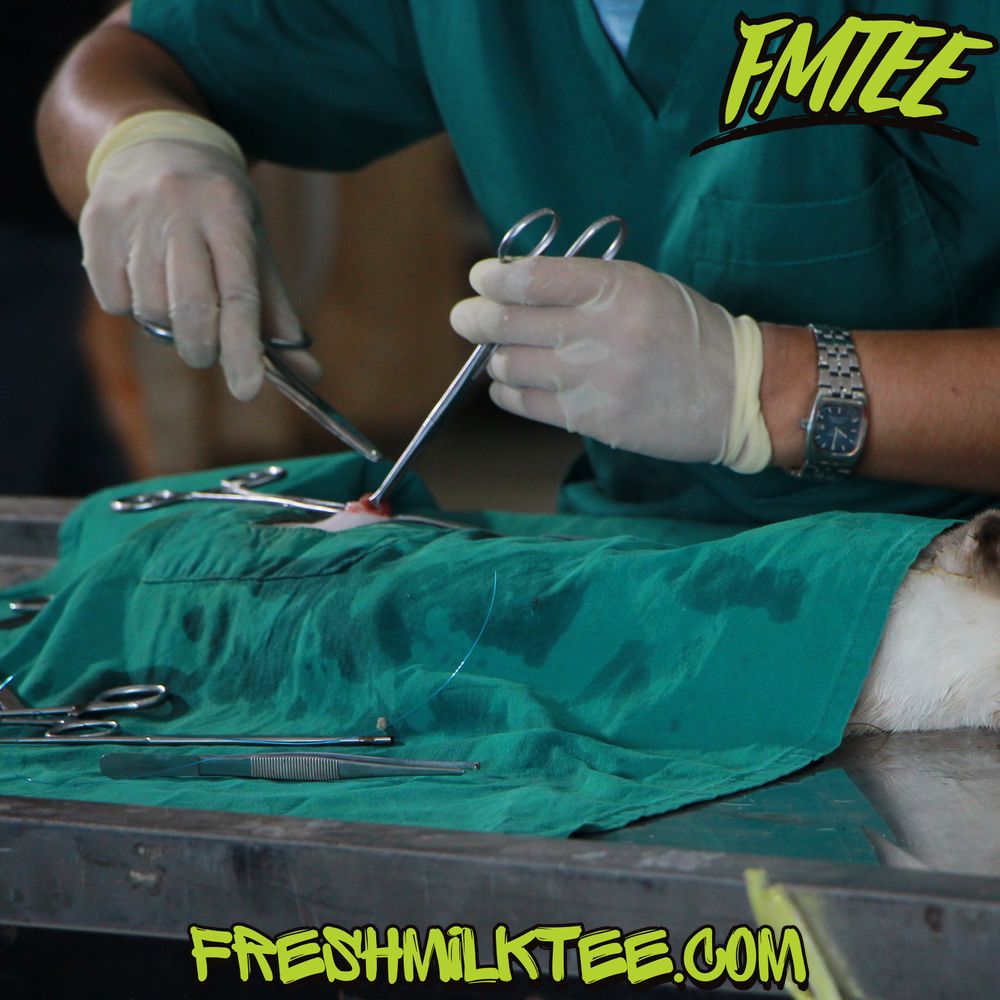Blog
What is the Average Salary of a Veterinarian in Georgia?
What is the Average Salary of a Veterinarian in Georgia?
Veterinarians play an essential role in society, ensuring the health and well-being of animals. For those interested in a career as a veterinarian in Georgia, understanding the average salary of a veterinarian in Georgia is crucial for career planning and financial considerations. In this article, we’ll explore various factors that affect the salary of veterinarians in Georgia, how it compares to other states, and tips to maximize income potential in this field.
Understanding the Role of Veterinarians in Georgia
Before diving into salary discussions, it’s important to understand the role of veterinarians in Georgia. Veterinarians provide medical care for animals, from family pets to livestock, ensuring they live healthy, productive lives. They diagnose and treat diseases, perform surgeries, and offer preventive care.
Veterinarians in Georgia are employed in various settings, including private practices, animal hospitals, government agencies, and research institutions. The role is diverse and can include specialized fields like surgery, dermatology, or exotic animal care. With Georgia’s mix of urban and rural areas, the demand for veterinary services varies, affecting salary expectations.
Importance of Veterinarians in Georgia’s Healthcare System
Veterinarians in Georgia are vital to both animal and public health. Georgia is home to many agricultural businesses, making livestock care an important aspect of the veterinary profession. Additionally, Georgia’s growing urban areas require veterinary care for pets and animals, expanding opportunities for veterinarians across the state.
Skills and Qualifications Required for Veterinarians
To become a veterinarian in Georgia, individuals must complete a Doctor of Veterinary Medicine (DVM) degree and obtain a license from the Georgia State Board of Veterinary Medicine. Specialized training or certifications can also enhance earning potential, with veterinarians often pursuing advanced qualifications in specific fields of veterinary medicine.

Average Salary of a Veterinarian in Georgia
The average salary of a veterinarian in Georgia varies depending on factors such as experience, specialization, and location. However, we can provide a general overview of what you can expect to earn as a veterinarian in Georgia.
What is the Average Income of a Veterinarian in Georgia?
The average income of a veterinarian in Georgia falls between $85,000 to $120,000 per year. Entry-level veterinarians typically start at the lower end of this range, while those with more years of experience or additional qualifications can expect to earn towards the higher end.
Salary Range for Veterinarians in Georgia
Veterinarians’ salaries in Georgia can range from $70,000 to upwards of $150,000 annually. These figures depend heavily on factors like the type of practice (private, corporate, or government), the geographic location of the practice (urban or rural areas), and the veterinarian’s level of experience and specialization.
How Much Do Veterinarians Earn in Georgia on Average?
On average, a veterinarian in Georgia earns about $100,000 per year. This can vary by specialty. For example, a veterinarian specializing in surgery or exotic animals may earn more than one working in general practice.

Factors Affecting Veterinarian Salary in Georgia
Several factors play a crucial role in determining the salary of a veterinarian in Georgia. Let’s explore these key factors in more detail.
Experience and Expertise in Veterinary Practice
As with most professions, experience plays a significant role in determining salary. Veterinarians with more years of experience generally command higher salaries. A seasoned veterinarian brings a wealth of knowledge and expertise that is highly valued in the field.
For new graduates, it’s important to note that salary expectations are generally lower. However, as they gain experience, their earning potential increases significantly.
Specializations within Veterinary Medicine
Veterinarians who specialize in areas like surgery, cardiology, or oncology often earn more than those who work in general practice. Specialization requires additional training and certifications, but it can lead to higher-paying opportunities in both private practice and research.
Geographic Location and Cost of Living in Georgia
The geographic location within Georgia also plays a role in determining salary. Veterinarians working in urban areas like Atlanta often earn higher salaries due to the higher cost of living and the demand for services in densely populated areas. Conversely, veterinarians in rural areas might earn less but could enjoy a lower cost of living.
The Impact of the Size of the Veterinary Practice on Pay
Larger veterinary practices or hospitals with multiple veterinarians may offer higher salaries and better benefits compared to smaller, independent clinics. Larger practices have more clients and can offer specialized services, which often translate to higher revenue and, consequently, higher salaries for their staff.

Salary Comparison: Veterinarians in Georgia vs. Other States
When considering a career as a veterinarian, it’s important to understand how salaries in Georgia compare to those in other states.
How Does the Salary of a Vet in Georgia Compare to National Averages?
The veterinarian salary in Georgia is generally in line with the national average for veterinarians. The national average salary for veterinarians in the U.S. is about $105,000, while in Georgia, the salary tends to range from $85,000 to $120,000. This shows that Georgia offers competitive salaries for veterinarians when compared to the broader U.S. market.
Veterinarian Salary by State: Georgia vs. Other States
When comparing Georgia to other states, Georgia’s salaries fall in the middle range. States like California, Texas, and New York tend to offer higher salaries, often due to higher demand or cost of living. However, states with a lower cost of living, like South Carolina or Alabama, may offer lower salaries for veterinarians.
Average Earnings for Veterinarians in Georgia Compared to Neighboring States
In neighboring states like Florida, Alabama, and Tennessee, veterinarian salaries are generally comparable to those in Georgia. However, some states offer slight variances based on regional demand. For instance, Florida offers a slightly higher salary, but Alabama may offer a slightly lower one.
The Financial Outlook for Veterinarians in Georgia
The financial outlook for veterinarians in Georgia is promising. As the veterinary profession continues to grow and evolve, salary growth is expected to follow suit.
Projected Salary Growth for Veterinarians in Georgia
Veterinarians in Georgia can expect steady salary growth over the next few years, especially as the demand for pet and livestock care increases. With more people adopting pets and the ongoing needs of agricultural industries, the veterinary field is expected to continue its upward trajectory.
What is the Earning Potential for Veterinarians in Georgia in the Next 5 Years?
Over the next 5 years, the earning potential for veterinarians in Georgia is expected to grow by about 3-5% annually, reflecting the demand for high-quality veterinary care across the state.
Long-Term Financial Benefits of a Veterinary Career in Georgia
Veterinarians in Georgia can enjoy long-term financial stability and growth. The increasing demand for veterinary services, combined with opportunities for specialization, will allow veterinarians to expand their careers and increase their earning potential.

How to Increase Your Salary as a Veterinarian in Georgia
Maximizing salary potential is a key concern for many veterinarians in Georgia. Here are a few tips to help you boost your earnings:
Tips for Increasing Income as a Veterinarian
- Pursue Specializations: Specializing in a particular area of veterinary medicine can significantly increase your salary.
- Seek Leadership Roles: Veterinarians in management or leadership positions, such as practice owners or department heads, tend to earn more.
- Continuing Education: Keep your skills up-to-date by attending workshops, conferences, and certifications.
- Expand Your Practice: Veterinarians who expand their services, such as offering emergency care or specialized treatments, can earn more.
Opportunities for Higher-Paying Positions Within Georgia’s Veterinary Field
Veterinarians in Georgia who transition to larger veterinary hospitals or teach at veterinary schools may have access to higher-paying roles. Additionally, roles in research institutions or government agencies can also offer higher salaries and more job stability.
Specialization as a Way to Boost Veterinarian Salary
Specializations like veterinary surgery, cardiology, or dermatology often lead to higher-paying opportunities. Veterinarians who complete specialized residencies or certifications in these areas can expect to earn top-tier salaries.
Conclusion: Is Veterinary Medicine a Lucrative Career in Georgia?
In conclusion, veterinary medicine is a rewarding and lucrative career in Georgia. The average salary of a veterinarian in Georgia is competitive, with ample opportunities for growth, especially as demand for veterinary care continues to rise. With the right experience, specializations, and career trajectory, veterinarians in Georgia can enjoy both financial success and personal fulfillment.
Frequently Asked Questions (FAQ)
1. How much do veterinarians make in Georgia?
Veterinarians in Georgia make an average salary of about $100,000 per year, with salaries ranging between $85,000 and $120,000 based on factors like experience, location, and specialization.
2. What factors affect the salary of veterinarians in Georgia?
The salary of a veterinarian in Georgia is influenced by factors such as experience, specialization, location, and the size of the practice.
3. How does Georgia’s veterinarian salary compare to other states?
Georgia’s veterinarian salary is comparable to national averages and slightly higher than those in nearby states like South Carolina and Alabama but lower than in high-demand areas like California.
4. Can I increase my salary as a veterinarian in Georgia?
Yes, you can increase your salary by pursuing specializations, taking on leadership roles, expanding your practice, and seeking higher-paying opportunities in research or teaching.

